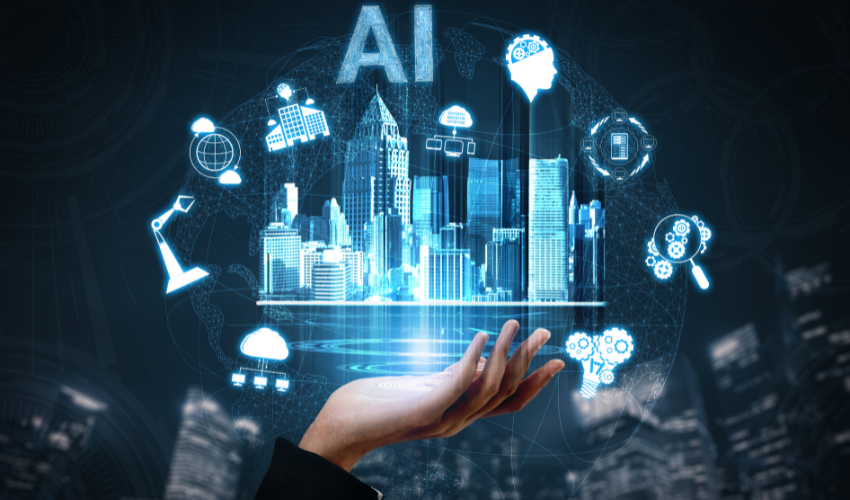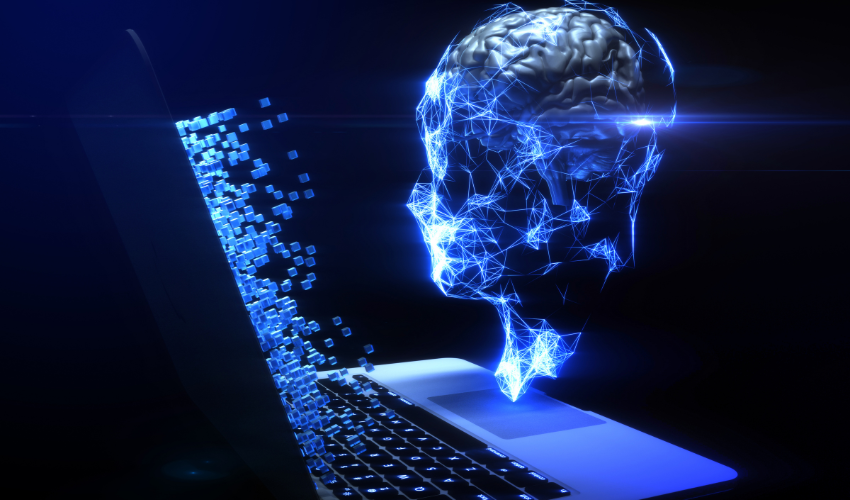Artificial intelligence, shortly AI, is the ability of a computer or a robot to do human-like tasks that usually require human intelligence and perception. Nowadays, AI is used more and more in various different fields such as online shopping, Siri, smart homes, cybersecurity, cars and many others. AI is increasingly being promoted in the talent and recruitment process.
Different Types of Artificial Intelligence
Overall, there are four types (reactive machines, limited memory, theory of mind and self-awareness) and three models of artificial intelligence. The 3 models include:
1. Assisted Intelligence
2. Augmented Intelligence
3. Autonomous Intelligence

Assisted Intelligence
It’s also considered as the most elemental form of AI, assisted intelligence is used for the automation of simple tasks and processes. This type of intelligence only works with clearly defined inputs and outputs. Its biggest advantage is that it liberates people from doing mundane tasks, which leaves them more room for other in-depth assignments.
Some of the examples include manufacturing robots, automated financial investing, smart assistants.
Augmented Intelligence
Augmented intelligence is the next level of artificial intelligence. Its main focus is on the assistive role, therefore it should complement, not replace the human intelligence. Some of the types of AI belonging to this category are machine learning, natural language processing and image recognition.
The fundamental distinction between assisted and augmented intelligence is that augmented intelligence can use current data and knowledge to offer new solutions instead of only finding patterns and implementing predesigned answers. At this point, augmented intelligence is able to make faster decisions than humans and is therefore especially useful in time-sensitive situations.
Autonomous intelligence
The most developed type of AI is autonomous intelligence. Processes are automated, which allows systems and bots to act independently, without human intervention. There need to be strict rules if people were to hand full autonomy to machines and robots.
For instance, space robots, a dam that can prevent flooding, vertical garden able to adjust to different weather conditions etc.
Artificial Intelligence in the Recruitment Process
The most difficult part of the recruitment process, according to 52 % of Talent Acquisition leaders, is screening candidates from a large applicant pool. And that’s where AI comes into play. The essential part is to interconnect the human and the technology, which gives the most efficient results.
Augmented intelligence is the best type of AI to use during the recruitment process because it can automatically screen resumes but that’s not all. Aside from that, AI can use chatbots to engage with candidates digitally in real time, as well as perform digitized interviews to help assess candidates’ fit without bias.
The output of this process could be a list of candidates best fitting for the vacancy. The list would afterwards be given to the recruiter who would review the list and decide which candidates to interview further.
After the recruitment process is finished, feedback could be given to supply the machine learning feature of the AI technology, which would therefore lead to better outcomes in the future by learning from the feedback provided.

The Pros and Cons of Artificial Intelligence in Recruitment
One of the key advantages of artificial intelligence includes saving time for recruiters by automating high-volume jobs, that would otherwise be time-consuming and repetitive, which could lead to irritability of the recruiters and thus lower quality of the hiring process.
Humans are often biased, whether it’s based on gender, race, nationality or many other factors. AI’s benefit is that it is potentially bias-free making the recruitment process fair and effective by choosing qualified candidates that could otherwise be avoided.
On the other hand, one of the challenges of using AI is that there is a requirement of using large amounts of data for the technology to learn which qualities to look for in candidates. Additionally, there is a risk of reading the data in an undesirable way, and consequently learning human biases.
Another challenge entails skepticism towards new technology by HR professionals.
The Bottom Line
Artificial intelligence – especially augmented intelligence can revolutionize the recruitment process immensely, although it has to still overcome some challenges, which could be avoided by e.g., educating the HR employees. Not only does it make the recruiter’s job faster but also makes them more proactive by leaving them more time to focus on other more in-depth tasks, which will essentially improve the whole quality of the recruitment process.